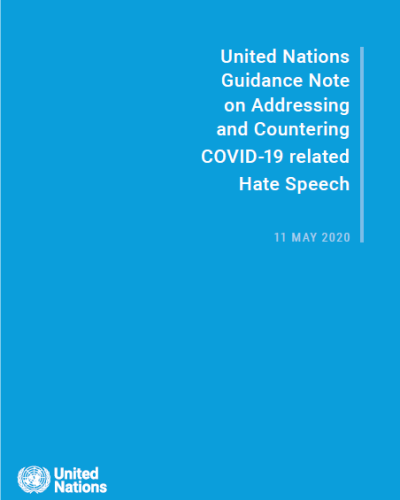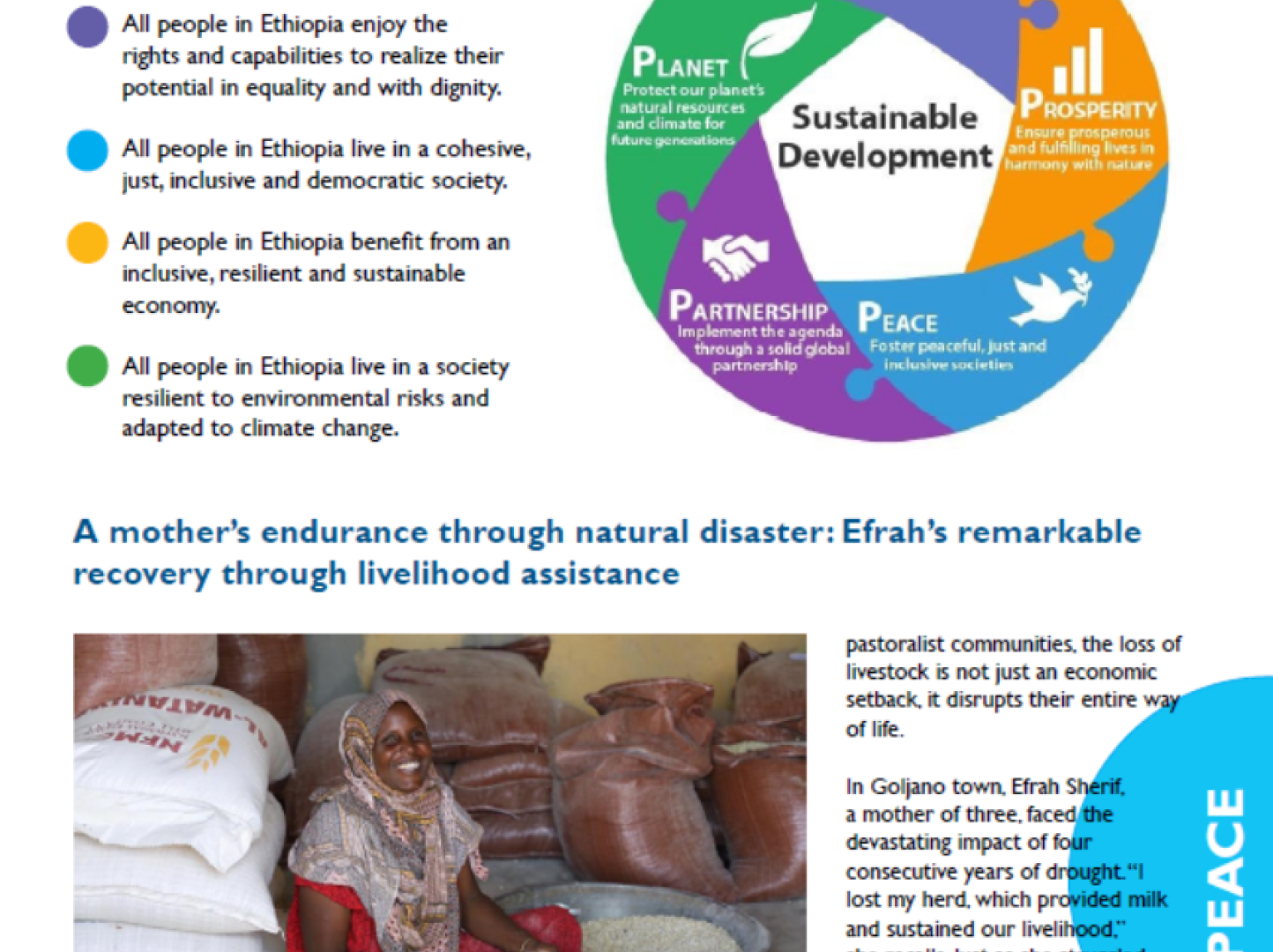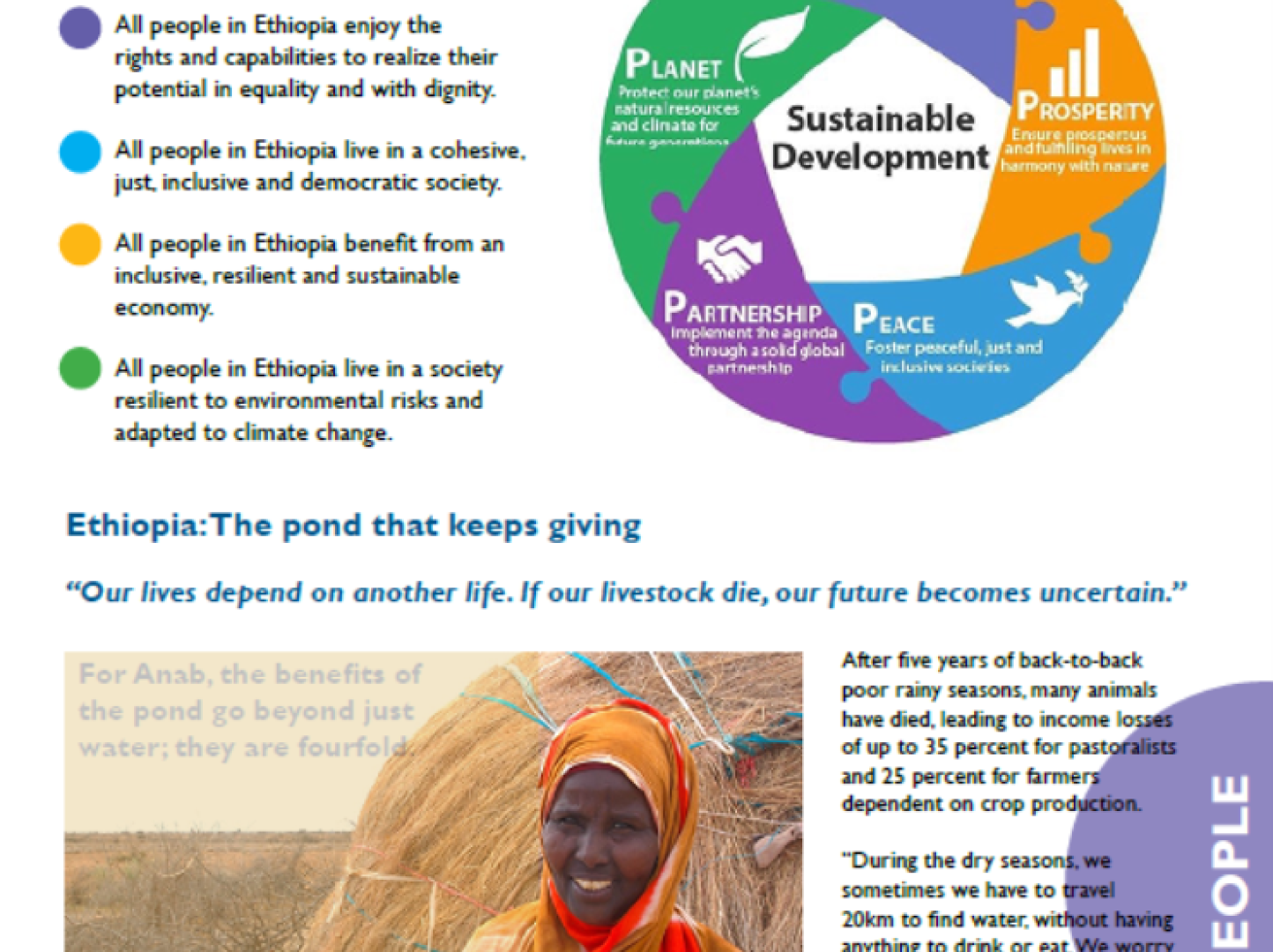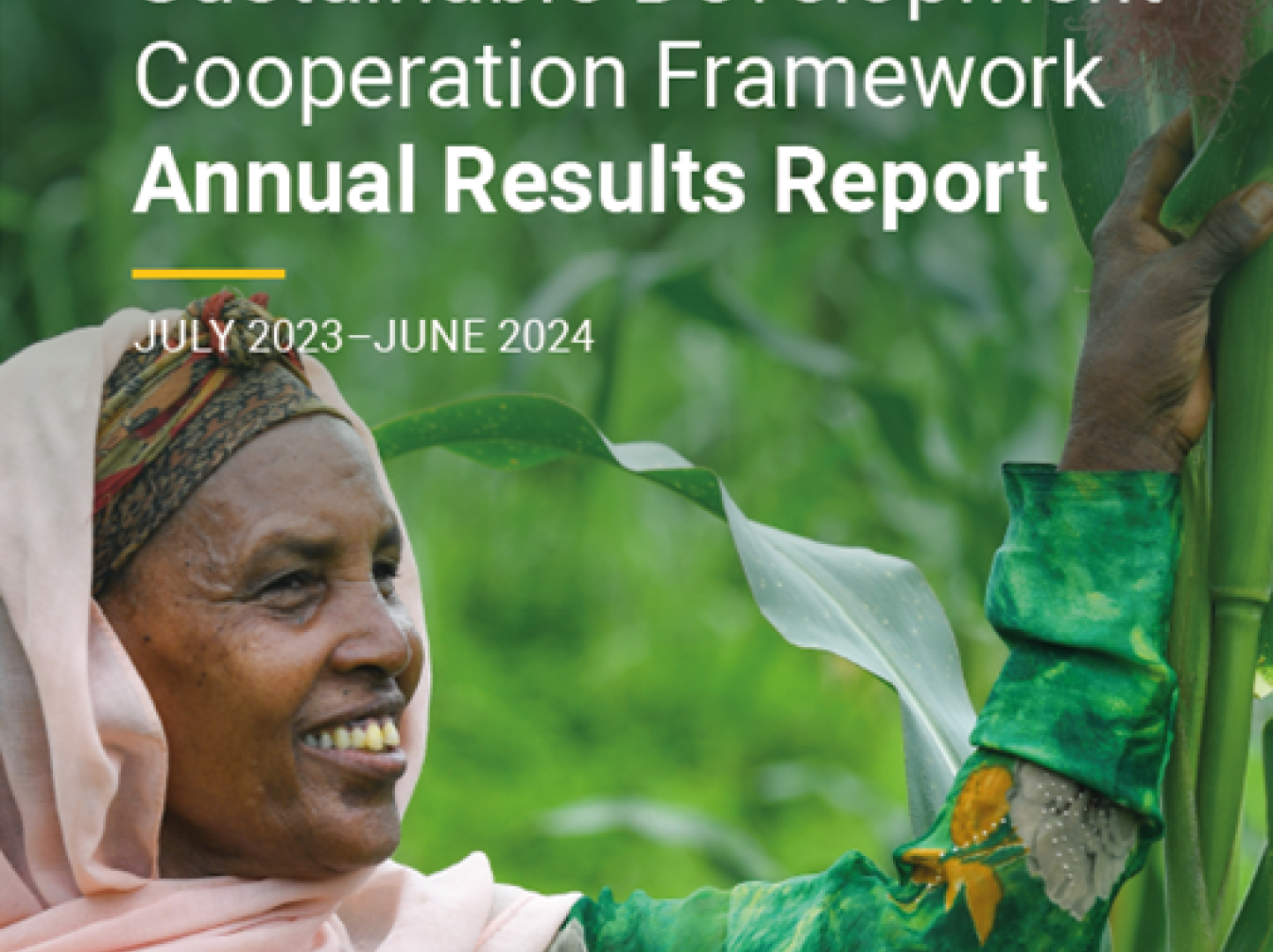United Nations Guidance Note on Addressing and Countering COVID-19 related Hate Speech

The COVID-19 pandemic has seen demonstrations of overwhelming solidarity between nations and communities working together to address the impact and challenges it poses. Unfortunately, the pandemic has also given rise to a new wave of hate speech and discrimination.
‘COVID-19 related hate speech’ encompasses a broad range of disparaging expressions against certain individuals and groups that has emerged or been exacerbated as a result of the new coronavirus disease outbreak – from scapegoating, stereotyping, stigmatization and the use of derogatory, misogynistic, racist, xenophobic, Islamophobic or antisemitic language. Closely linked to this is the dissemination of ‘disinformation’ or ‘misinformation’ related to COVID-19.
Since the pandemic emerged, individuals perceived as ethnically Chinese or Asian, or belonging to certain ethnic and religious minorities, migrants, and foreigners have been blamed and vilified for spreading the virus. In some instances, this is grounded in misinformation and rumours, however, more insidious instances of hate speech related to COVID-19 being used to target already marginalized populations have also been reported. Conspiracy theories attributing the spread of the virus to Jews, Muslims, Christians, Bahai’s or minority groups has fuelled discriminatory speech against such individuals, in some instances resulting in hate crimes or discrimination against them in the response to COVID-19. In some instances, journalists, whistle-blowers, medical and health care professionals, human rights defenders and peacebuilders – are also being subjected to unlawful attacks as a result of their work in addressing or reporting on the pandemic.




